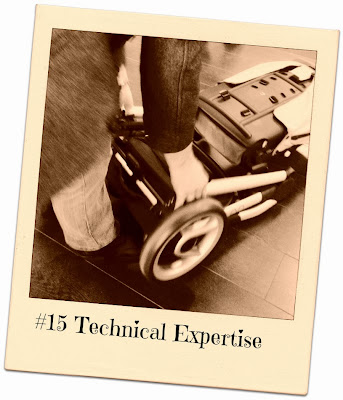Firstly, there is lots more writing to do and it still needs an awful lot of editing and crafting to create a novel that I would be happy for any one of you to read. Despite working for many hours, it really is a long way from being a finished product. Some of you have asked 'when will we get to read it?'. I'm guessing about 2020…..
Secondly, the 50900 words I have written so far were hard. Not as in a struggle to get words on paper, but an emotional struggle to relive events of the past and get them written. My life has been pretty uneventful, nothing out of the ordinary, no extreme events that warrant a best selling book. I had a happy childhood, I went to university, spent a year in Toulouse, messed around for a bit retrying to deicide what I wanted to do with my life, decided on a career in Human Resources, met a Dutch man and moved to the Netherlands and had three sons. That's it in a nutshell.
 |
| Photo Credit: Pear38 |
Some of what I have written will never see the light of day - that would be unfair to loved ones - but the act of writing about some things was enough reward in itself in some cases. Writing about some events made me feel like it had just happened, all over again, and I found myself feeling furious at some people in my life. It really has been a tough writing journey. And it made me think over and over about the words from writer Jo Parfitt about your best writing coming from writing from a place of pain. Truer words have not been uttered! Raw emotion makes for good writing.
My memory databanks have been working overtime during November. One memory has sparked another and I have been amazed by the depth at which some things were buried. NaNoWriMo pulled them all out to the surface, things I haven't thought about for years.
I have also been incredibly grateful during this last month for the journals I have written over the years. There are gaps in my memories, or things were not as I remember them. Or I have long forgotten the details. Rereading my journals helped me get right back inside the moments of my past. I have relived happy and sad times through my journal writing. It spurred me on to get back to writing in my journals more in the present. I have been seriously neglecting them over the last year and I have vowed to correct that. Every day there are moments worth writing about - things that seem so mundane and uninteresting yet in five years time they will be confined only to our memories. Our routines change, our daily lives evolve with the months and we won't remember how our days looked when we look back in a year. Yes, seems like I am back to that theme of capturing the moments…..








































